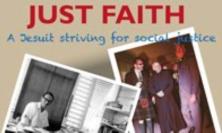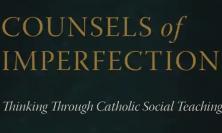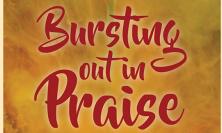In a world where talk about AIDS is dominated by medical and sociological theories, many Africans have found that this discourse reduces them to objects of scientific study and social analysis, all with the noble intention of helping. But none of these theories have actually sought to articulate a dialogue that is rooted in the African worldview, until now.
In Aids, Ancestors and Salvation, my fellow South African Jesuit priest Peter Knox traces the damage that AIDS has done to the fabric of African relationships, damage that has ripped apart the very notion of what it means to belong and to be a person. To be a person is to belong. Without that belonging and that sense of being part of a wider and timeless bond of relationships, an AIDS sufferer is left with the sense of being almost an animal, whose suffering is shared with no one and is without purpose. Knox affirms that this sense of timeless belonging needs to be rediscovered in and re-articulated to an African world which demands not only that the dead be remembered and venerated, but that the living be embraced and affirmed.
One of the book’s central discussions focuses on the cult of ancestors that is hugely important in African cultures. In a courageous step, Knox responds to the objective reality of ancestors, at least in the South African landscape. It is courageous because he describes a religious and cultural reality which the wider Church community would rather ignore or dismiss as irrelevant to modern Christian experience: a reality which is often seen as creating syncretism, especially in discourses on Christian tradition vis-à-vis inculturation; a reality marked by AIDS, which has devastated the African community in South Africa. In a milieu that assumes that the medical and moral salvation of Africans lies in Western values, Knox is challenging the misconceptions about ancestors not only through well-articulated analyses of the culture that venerates them, but also through a deeper theological and, more precisely, soteriological articulation of the indispensable place of ancestors in this particular context. This is crucial for African Christians seeking clarity and solutions for the problems of AIDS. It is also urgent for the wider Church to begin to realise the true reality of their fellow Christians in Africa.
In Chapter 4, Knox joins Allan Anderson in concluding that Christians, in order to be relevant in Africa, ‘have to respond to the objective reality of ancestors’ (p. 92) either by confrontation or by accommodation. He also quotes Klaus Nürnberger, asserting, ‘Ancestor veneration is practised widely in mainline churches in Africa, Asia and Latin America, usually in secret. Let us remove the stigma, bring it into the open and respond creatively to the spiritual needs of those concerned.’(p. 94) Similar words are used about HIV/AIDS and the need to respond creatively to its challenges, removing stigma and bringing discourse about it into the open.
The fact that HIV is mainly transmitted sexually automatically makes it a highly sensitive matter: firstly because sexuality is always a sensitive matter in any society; and secondly because HIV/AIDS introduces something malicious and deadly right into the heart of the most intimate of human relations and acts, where one spouse shares love but also death with the other. Even more devastatingly, it introduces terror into the transmission of life whereby parents give life to an offspring but then place on that child the burden of disease and often a very painful and lonely death. Thus HIV/AIDS is not simply a medical matter. It cuts deep into what makes us community and what makes us people.
Knox's ideas are invaluable for those Africans who find themselves unable to come to terms with being Christian and living with AIDS and HIV, for those who seek to help others struggling with this disease, and for those who have lost hope and respect for others. Knox shows that God's grace sometimes manifests itself in ways that are not orthodox, and so he urges:
People who are affected by AIDS need to access their deepest religious and spiritual resources in order to find healing, consolation and resolution. Theologically and spiritually reflective Christians should help others to find and employ these resources, even if they do not originate in a traditional Christian source. (p. 168)
Knox is not trying to write a 'salvation manual' for Africans now trying to deal with AIDS. Rather, he is trying to point out that the Church cannot afford to marginalise or exclude their system of beliefs. This is for the sake not only of the Church itself, but also of those living with HIV and dying of AIDS.
This endeavour is not about the Church or the Pope or traditional Christianity finally giving theological recognition to African values in a post-colonial environment. It is much more important than such ideas, which seem mere silliness when faced with the gravity of the reality Knox is writing about. It is about seeking to find God in the fundamental but everyday reality and faith of people, calling on wells of strength passed from generation to generation, in an attempt to find God's saving grace in the midst of a pandemic of death. For Knox this kairos is a moment not simply of testing but also of opportunity, calling for a more prophetic Christian approach to salvation in a time of AIDS.
The reviewer, Matsepane Morare SJ, is Parish Priest of St Mary’s Nyanga, Cape Town.
To enquire about or purchase this book, please email [email protected] - this book is not currently available in the UK.






